 Your new post is loading...
 Your new post is loading...
Join us as we explore whether AI will replace the need for kids to develop their coding skills, or whether it will simply change what coding looks like in the future.

|
Scooped by
John Evans
|
I’ve spent a lot of years talking with and listening to some very smart people, and one thing I’ve noticed is that the people who are legitimate experts in their fields rarely spout off facts like they are the final word. Their assertions don’t back you into a corner or embarrass you into silence. Their delivery is often quieter. More nuanced. The smartest people in the world are least likely to have singular, one-note answers to difficult questions. They’re more likely to respond with “It depends,” and then, if you’re willing to stick around and listen, share ideas that take a little more time to develop.
And I want to take a moment to elevate that, because I believe that if we spend more time practicing this kind of thinking, if we honor the true elegance of that gray area, we’ll all be a lot better off.

|
Scooped by
John Evans
|
My life isn’t anywhere near when I thought it would be. There have been so many times that I’ve felt success or I’ve felt less than anyone around me. So many times where I’ve cried because I’ve had to let go of dreams and goals that I was holding onto way too tightly that in the end weren’t meant for me. I’ve had to make tough decisions to move on and trust that my instincts were correct even when the plunge meant something like leaving a job without another one lined up. I’ve had to mourn the loss of experiences I’d never have. I’ve had to feel lost in order to find myself. Repeatedly.

|
Scooped by
John Evans
|
If we hope for equity in education, we may have to abandon our efforts toward standardization and recognize the individuality of our students.

|
Scooped by
John Evans
|
For Duke University sophomore Mila de Souza, including social-emotional learning in schools should be common sense.
By that, she means it should be second nature for schools to support students’ mental health, teach children how to work well with others, and become a place where both educators and scholars can learn to value one another’s diverse experiences.
“I feel a lot of schools are focusing on just education and making sure these students are able to pass tests, but not really teaching students how to be good citizens in the world,” de Souza said.

|
Scooped by
John Evans
|
Whether it’s my uber driver, a parent, teacher, student etc. it seems that more often than not in various conversations I have people tell me that they (or their children) don’t “learn that way” in reference to how we traditionally do school. People explain that they are visual or like to work with their hands or need to talk to others and try some things out, which they often explain, is not how they were supposed to “learn” in school. Instead, success was determined by sitting still, individually completing endless packets or worksheets, and providing the right answers on the tests.
I am amazed (and honestly frustrated) that we have become so conditioned to believe that the way we do school in many cases is what’s right instead of the way many people actually learn. We have this widely accepted notion that there is something wrong with us (or others) because we don’t fit in the box of what is traditionally accepted as smart, instead of acknowledging that learner variance is the norm, not the exception. As I work with diverse educators and talk with students, there are common characteristics that always surface when people share powerful learning experiences.

|
Scooped by
John Evans
|
On this episode of School’s In, Linda Darling-Hammond shares her top-five list of ways to change education in America.
What are the most powerful things we can do to transform education? Linda Darling-Hammond, President and CEO of the Learning Policy Institute and the Charles E. Ducommun Emeritus Professor of Education at the Stanford Graduate School of Education, offers her top five recommendations in an interview with GSE Dean Dan Schwartz and Senior Lecturer Denise Pope.

|
Scooped by
John Evans
|
Four simple ways to model and promote compassion, which is especially important for students with adverse childhood experiences.

|
Scooped by
John Evans
|
Throughout history, from Plato on, creative people have spoken out against the stultifying effects of compulsory education. Here are quotations from fifty such people, which I have culled partly from my own reading but mostly from various other websites.
Social studies classrooms throughout the Boston public school system are getting an upgrade some 448 years in the making.
Via Scarpaci Human Geography
Robust computer science curriculum is necessary for our society's future. Here are five steps to engage teachers and students in this critical area of study.
Via Gust MEES
Imgur is home to the web's most popular image content, curated in real time by a dedicated community through commenting, voting and sharing.
Via Dr. Susan Bainbridge
|

|
Scooped by
John Evans
|
In addition to teaching, educators play a number of vital roles in students’ lives.
They serve as listeners and leaders, counselors and coaches, disciplinarians and disruptors, mediators and motivators, surrogates and soldiers, entertainers and energizers, and advocates and allies. In a typical day of switching among the ever-evolving list of roles, it is typical for educators to experience stress, burnout, guilt, and deviation from their ultimate purpose.
We hope this curation of quotes from the most compelling teachers and educational leaders in the field can serve as a source of inspiration for educators who need an extra boost at the beginning of each day, and a reminder of the reasons why they stepped bravely into the complex, critical role of guiding children from potential to possibility.
They come from different education and career backgrounds, and they work in distant divisions at Houghton Mifflin Harcourt. But after only a few minutes of conversation, it’s abundantly clear that Kyra Donovan and Dr. Julie Miles share a passion for learning and a strong conviction that assessment is essential to creating the best educational outcomes for students of all abilities.
Via EDTECH@UTRGV

|
Scooped by
John Evans
|
Understanding how we learn has always intrigued educators and psychologists. Pioneers like Dewey, Maslow, and Vygotsky developed some of the first learning theories, but it wasn’t until education joined neuroscience that we’ve made significant advanced in understanding learning.
Researchers now understand that education is a science. Learning as much about how the brain learns and stores information is the next logical step in merging the two fields. The result is neuroeducation, which “serves to apply the scientific method to curricula design and teaching strategies.”
Neuroeducators take into consideration brain physiology and learning. Assuming that the brain has suffered no physical damage, it’s ready to learn, especially when teachers have learned how to use neuroeducation in their classrooms.
To make the most use of neuroeducation in the classroom, teachers can incorporate these critical findings:

|
Scooped by
John Evans
|
In the past seven months, I have held four different titles. Summer 2018 was my season of transition. My title changed from Assistant Principal to Associate Principal to Interim Principal to Principal. The pace has been swift. I’ve had to think on my feet. There have been quick yeses, slow nos, let-me-sees and that’s simply not the way we’ll do its.
Andy Mineo, one of my favorite artists, says “If you stay ready, you ain’t gotta get ready. Y’all ready? Already...” This is my banner, my mantra. As a teacher, I would vision cast about being in leadership. I spent ample time considering adjustments I would initiate and decisions I would make for the betterment of teachers and students. While serving other administrators, I’d take notes about what I loved and jot down new ideas. Thankfully, I have walked behind and beside principals who allowed me to thrive. They championed my aspirations. Still, there’s something extra special about executing your own idea when you are the principal. It truly is the icing on the cake.
So, how has it been?
I am a principal.

|
Scooped by
John Evans
|
"Here are five of the ‘classic’ TED talks we think every teacher should watch and share with students, or better yet, watch together in class and engage students in constructive discussion around their themes. The speakers are leading thinkers in their fields and the themes covered include motivation (Dan Pink), leadership (Simon Sinek), grit ( Angela Duckworth), education death valley (Sir Ken Robinson), and belief in students potential (Rita Pierson). "

|
Scooped by
John Evans
|
I was speaking (tweeting) with Mark Barnes tonight, and he mentioned the idea of challenging existing forms and practices. And then someone tweeted the above image–a quote attributed to Rear Admiral Grace Hopper, according to the image source globalnerdy.com–and I was happy and favorited and saved and blogged.
The most dangerous phrase in the language is “we’ve always done it this way.” Which applies to education, too.

|
Scooped by
John Evans
|
The Common Vision - A Canada where all Canadians move more and sit less, more often.
Being physically active is key to good overall health and to preventing chronic disease. Levels of physical inactivity and sedentary living among Canadians are critical issues in Canada.
Never before has Canada had a singular policy focus on physical activity and its relationship to sport, recreation, health, and other relevant policy areas. The Common Vision is a new, collective way forward that will guide the country towards ways of increasing physical activity and reducing sedentary living. It is a national policy document that is intended to move the country.Footnote *
Informed and inspired by Indigenous perspectives, and input from many organizations and leaders, the Common Vision is for all that have a stake in promoting physical activity and reducing sedentary living in Canada. To make progress, bold, new steps must be taken together.
The Common Vision serves to complement and align with other relevant policies, strategies and frameworks.

|
Scooped by
John Evans
|
"Sir Ken Robinson’s views on creativity are abundantly well documented. In his 2006 TED Talk—still the most-watched of all time—he claimed that “we are educating people out of their creative capacities” and charged the current education system with being too rigid in adhering to traditional academic subjects. Kids, he argued, need time to dance, draw, create and find what they’re good at.
But he hasn’t given up on schools or education—far from it, in fact. For his follow-up act, Robinson is releasing a new book for parents on how to raise capable children who thrive in school. Make no mistake, though, he’s still shaking up the system (and redefining what that actually means)."

|
Scooped by
John Evans
|
Educators—at all levels, including and maybe especially college—need to take a hard look at themselves and understand how they teach affects the results they are hoping to achieve. They need to know who they are teaching. They need to stop shaming their students and blaming them for not learning, especially when the way they are teaching students results in the lack of learning and understanding that they decry in their students.
25 Reading Strategies That Work In Every Content Area
Via Gust MEES
Constructive uses of social media in education is becoming an integral (and one might venture inevitable) part of the learning experience. Here’s a look at how so, at every stage of the game.
Via Gust MEES
|




 Your new post is loading...
Your new post is loading...
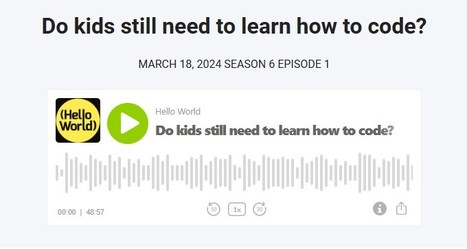




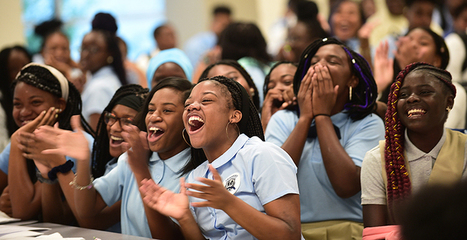

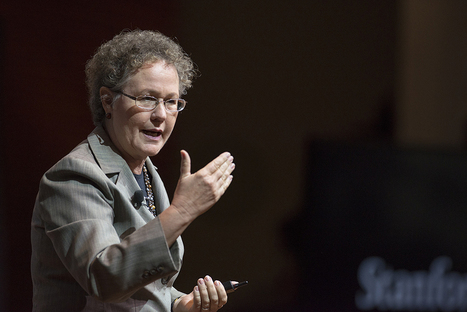


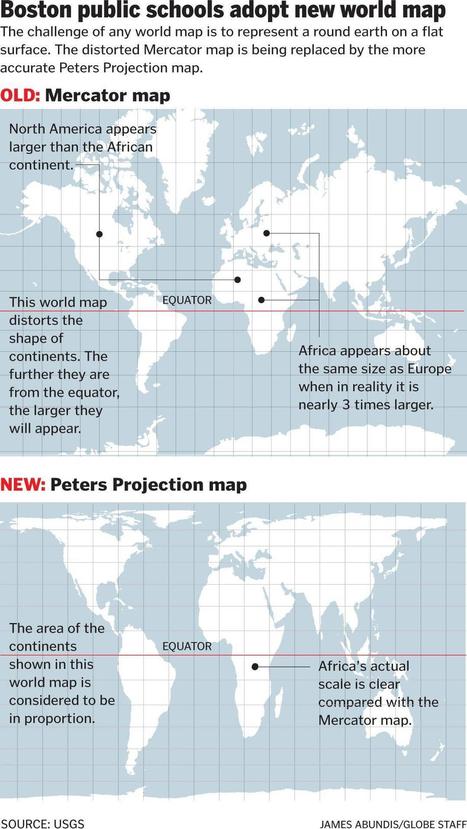







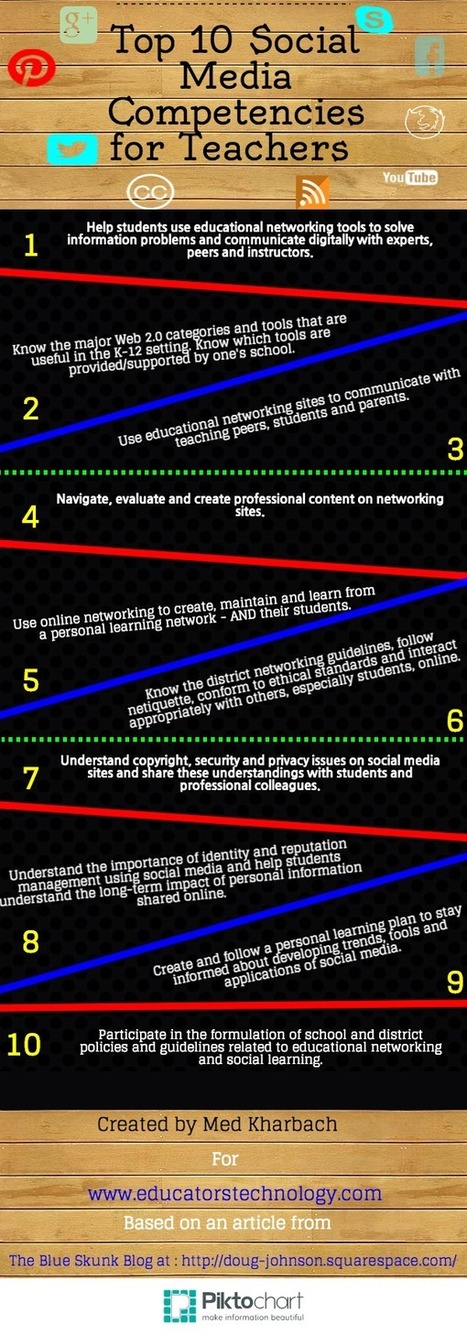



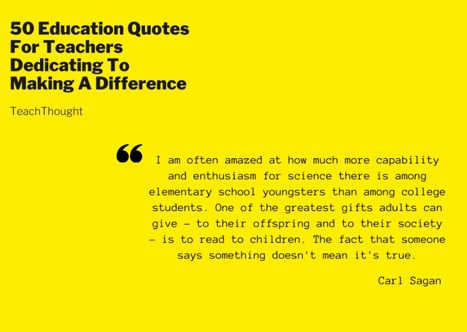




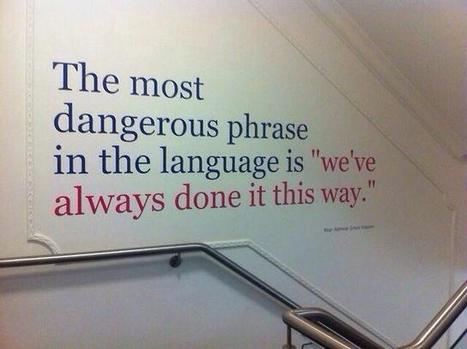
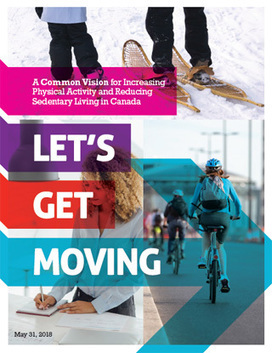


![Connectivism [Infographic] | Professional Learning for Busy Educators | Scoop.it](https://img.scoop.it/g80D1nB72U-guyGWfI-QRTl72eJkfbmt4t8yenImKBVvK0kTmF0xjctABnaLJIm9)


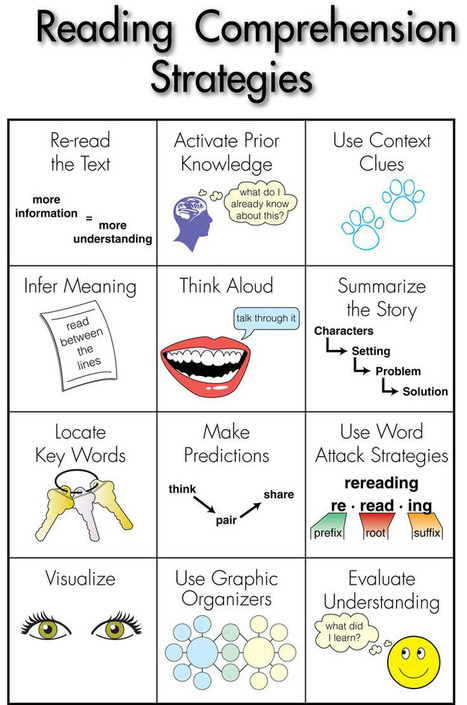



![Social Media 101: Is There a Place For Social Media in Classrooms? [Infographic] | Professional Learning for Busy Educators | Scoop.it](https://img.scoop.it/oLs145ocGYdRSv0KgZ56Cjl72eJkfbmt4t8yenImKBVvK0kTmF0xjctABnaLJIm9)






